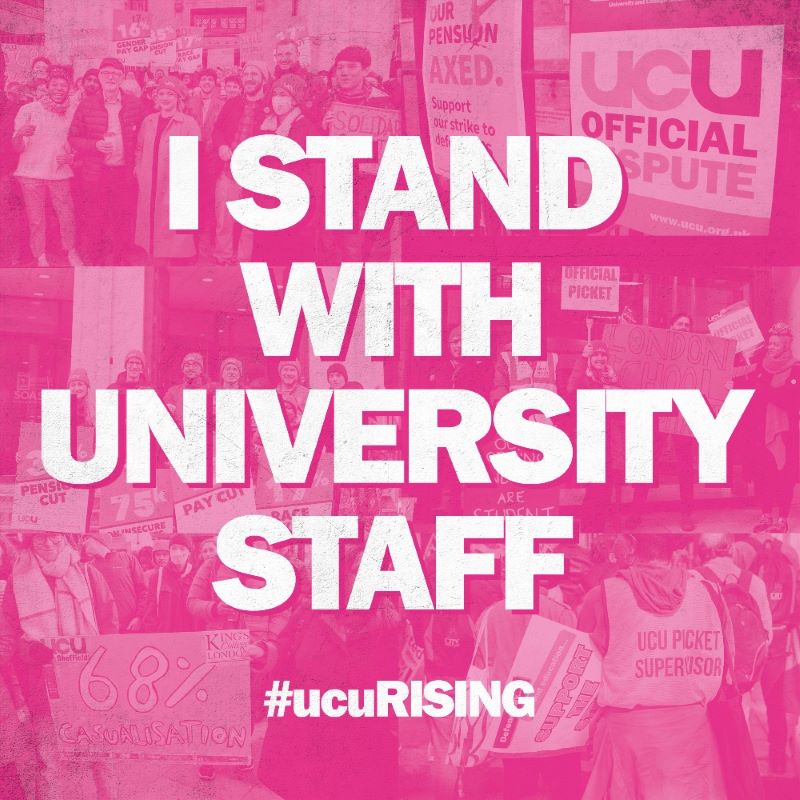by Dr Elizabeth Reed.
This week and next, members of UCU (the University and College Union) at Higher Education institutions across the country will be taking strike action on three days (24th, 25th and 30th November). We don’t want to do it, but the conditions in our workplaces have left us with no other option.
Many people probably imagine the life of a lecturer, or university librarian, or IT technician to be a charmed one – months of holiday time and a hefty salary? Unfortunately, that is a fantasy. For university employees in 2022 pay inequality, punishingly huge workloads and casualisation are the key features of our workplaces.
Across the Higher Education sector, the gender pay gap stands at 16%, the disability pay gap is 9% and the pay gap between Black and white staff stands at an eye watering 17%. We are seeking meaningful action from universities to close these pay gaps; not in 22 years (based on the current rate of change) but now. We deserve the same pay for the same work, and we deserve the same opportunities to progress in our careers regardless of whether we have different caring responsibilities, disabilities, or racial backgrounds.
On average, academic staff are working 50 hours a week just to keep up with ever increasing workloads – that’s two days of unpaid work a week. There are lots of reasons why our workloads are increasing at this rate; university bosses are increasingly seeing students as cash cows. The more bums on seats in those lecture halls and seminars, the more money they rake in. Where does that money go? One place we’re asking for scrutiny is the salaries of the ‘bosses’ of universities: the Vice-Chancellors. These are non-teaching, non-researching staff who rake in six figure salaries. Meanwhile, the people meeting and caring for students, teaching, and trying to research how to solve problems ranging from sexism to cancer, are relying on food banks, universal credit and even struggling to afford housing.
The consequences of this culture of impossible workloads, low pay, insecure contracts, and huge pressure mean that university employees are experiencing poor mental health, with more than half reporting they have symptoms consistent with depression.
At a time when students are facing soaring debts, an uncertain economic climate and a well-documented mental health crisis, we need a revolution in working conditions so that we can support them effectively, deliver the world class teaching our universities promise, and show them that healthy, equitable, fair workplaces are a right, not a privilege. The National Union of Students has come out firmly in support of the strikes; staff working conditions are student learning conditions and we all deserve better.
You can read more about why these strikes have been called on the UCU website. Messages of support help keep our spirits high as we forgo pay for the days we’re on strike, it also helps show our employers that people recognise our fight is just; you can tweet support using the hashtag #UCURising and copy in local UCU branches at Southampton (@SouthamptonUCU), Solent (@UCU_Solent) and Winchester (@WinchesterUCU). If you find yourself near a picket, come over and say hello, or feel free to ask why we’re out on the streets instead of in lecture halls, libraries and offices.
- In Common is not for profit. We rely on donations from readers to keep the site running. Could you help to support us for as little as 25p a week? Please help us to carry on offering independent grass roots media. Visit: https://www.patreon.com/incommonsoton

